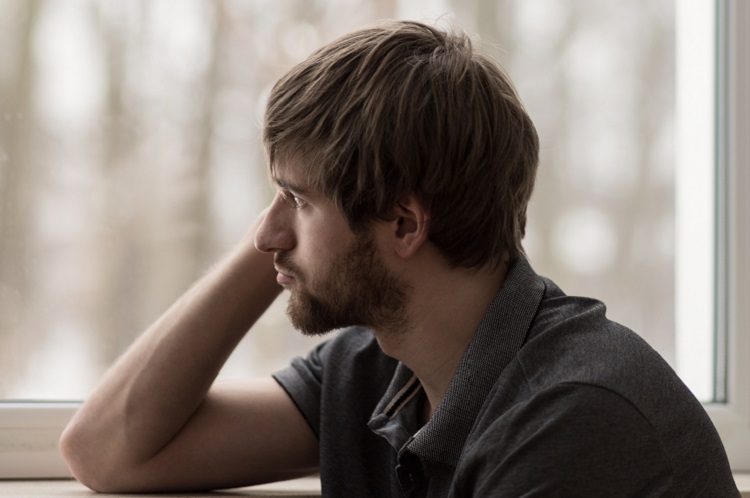
Contributor: Cross Creek Hospital clinical content team member Hugh C. McBride, BA.
Few codependent relationships are as destructive as the one between addiction and blame. To struggle with addiction is to experience ever-greater degrees of loss and isolation. Friends, families, careers, self-respect, and even hope itself can be lost in the darkness of addiction. When the disease reaches its nadir, the addict may feel as though he or she is totally alone and recovery is not possible.
Of course, this isn’t true. Blame is still there. When everyone else has left, and everything of value has been taken away, blame remains.
The Blame
 Addicts blame themselves for giving in to their disease. They blame their disease for destroying their lives.
Addicts blame themselves for giving in to their disease. They blame their disease for destroying their lives.
They blame others for causing the pain that drove them into substance abuse in the first place, and they blame their friends and family members for failing to help them.
In turn, that blame fuels greater anger, entrenched bitterness, and continued substance abuse. And thus the cycle continues.
To be fair, the compulsion to blame is hardly unique to addicts. In a world that often appears to make little or no sense, the desire to create a cause-effect narrative is a virtually universal experience.
However, this can easily cross the line from explaining to blaming, especially when we are attempting to justify or excuse a negative behavior or less-than-admirable decision.
Blame can span the spectrum from innocuous (“I was late to work because my husband forgot to set the alarm clock”) to outrageous (“My continued failures in my personal and professional lives are totally because my parents liked my brother better than me”).
For the addict, thought, the tendency to blame does more damage than merely muddying the historical record. Failing to transcend the desire to blame can keep an individual mired in the depths of addiction.
Responsibility and Recovery
An essential component of recovery is taking responsibility for one’s actions. Steps 4 through 10 of the 12-Step recovery model all involve acknowledging one’s shortcomings, being accountable for one’s behaviors, and addressing the pain and suffering that one has caused. [1] These tasks are far from easy to accomplish, but they are essential for those who follow the 12-step model.
It is also important to understand that saying goodbye to the blame game extends beyond substance abuse. Though we cannot control the actions of others, we can always control how we respond to those actions.
When exposed to stresses, pressures, and other unpleasant stimuli, some of us will respond with substance abuse, self-harm, or violent outbursts, while others may exercise, meditate, or pray. Regardless of how a person chooses to respond, it is essential to remember that he or she made a choice and is accountable for the repercussions of that choice.
 One of the many reasons why people are loath to embrace the concept of taking personal responsibility is that this act is often associated with, and here’s that word again, taking blame.
One of the many reasons why people are loath to embrace the concept of taking personal responsibility is that this act is often associated with, and here’s that word again, taking blame.
Taking responsibility is often interpreted as being the focus of criticism when something has gone wrong.
For example, we rarely see a coach, CEO, or other leader say the words “I accept full responsibility for this” when discussing something positive.
But it doesn’t have to be this way. As philosophical counselor Elliot D. Cohen, PhD, observed in a 2012 post on the Psychology Today website accepting responsibility can be a conduit for growth, development, and increased positivity:
Recast responsibility as a way to learn from your mistakes as well as those of others. Accept your fallibility as a route toward self-improvement. Try to make things better, but rest content that you live in an imperfect world. Embrace this imperfect universe and the fallible beings in it, yourself and others —and stop blaming people for it. [2]
In recovery, saying goodbye to the blame game doesn’t only mean that addicts acknowledge all of the negativity that they introduced in the world. It also means that they open their hearts and minds to accept responsibility for the hope, joy, and endless possibilities that can result from living a drug-free (and blame-free) life.
References:
[1]: Alcoholics Anonymous. (2001). Alcoholics Anonymous, 4th Edition. Page 59. New York: A.A. World Services.
[2]: Cohen, Elliot D. (July 29, 2012). Stop Playing the Blame Game: How Your Blame Claims May Be Impeding Happiness.” Psychology Today. Retrieved from https://www.psychologytoday.com/blog/what-would-aristotle-do/201207/stop-playing-the-blame-game.
About the author: “Recovery and Saying Goodbye to the Blame Game” was written by Cross Creek Hospital clinical content team member Hugh C. McBride. Hugh has several years of experience researching and writing on a wide range of topics related to behavioral healthcare. He has a Bachelor of Arts degree from Grove City College.
About the site: Located in Austin, Texas, Cross Creek Hospital is an inpatient treatment center that provides comprehensive care for adolescents, adults, and senior adults who are struggling with mental, emotional, and/or behavioral concerns. Treatment at Cross Creek Hospital is an intensive and highly personalized experience, with multidisciplinary teams of experienced professionals employing a variety of treatment modalities, including cognitive-behavioral therapy, didactic therapy, and multiple experiential therapies, to best meet the unique needs of each person who is entrusted into our care.
The opinions and views of our guest contributors are shared to provide a broad perspective of addictions. These are not necessarily the views of Addiction Hope, but an effort to offer a discussion of various issues by different concerned individuals.
We at Addiction Hope understand that addictions result from multiple physical, emotional, environmental, and genetic factors. If you or a loved one are suffering from an addiction, please know that there is hope for you, and seek immediate professional help.
Published on December 14, 2015
Reviewed and Updated by Jacquelyn Ekern, MS, LPC on January 4, 2021
Published on AddictionHope.com
